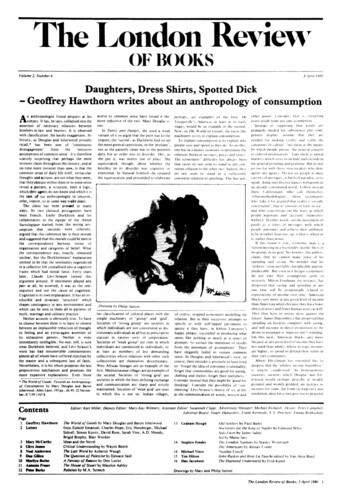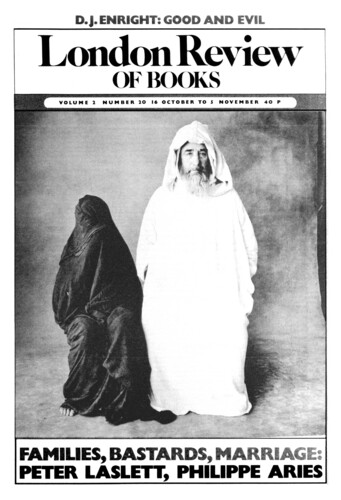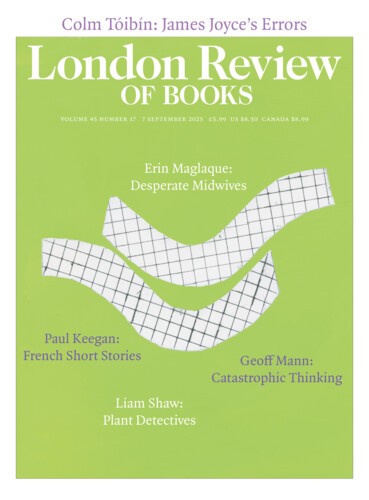Dynasties
Antonia Fraser, 3 April 1980
Why should anyone wish to write the history of a Royal house? On one level, the answer to that question is easy: most of us learnt history in childhood in terms of Angevins, Plantaganets and so forth, and these convenient groupings gave shape to what was often so dauntingly shapeless. Patterns inculcated early in life tend to leave a permanent impression, especially on those who take no more than a superficial interest in the subject. For these groupings are in themselves essentially superficial. Where the characters of the individual monarchs are sufficiently imposing, one seldom talks so glibly about the composite nature of the Royal house. What, for example, were the ‘Tudor’ characteristics – those possessed in common by Henry VII, Henry VIII, Edward VI, Mary I and Elizabeth I? Ruthlessness? At first, that seems a promising answer. After all, even Edward VI before his premature death managed to exhibit his father’s notorious ‘frown’. Unfortunately, the generalisation will not bear closer examination. It is simply not accurate to describe Mary Tudor as ruthless. Suppose, following her popular nickname, one substituted ‘bloodthirsty’ for ‘ruthless’ – or at least ‘fanatical’? This merely leaves one with the problem of Elizabeth, who, arguably ruthless, was certainly not bloodthirsty – the very reverse – nor indeed fanatical. The truth is that Elizabeth probably owed more than we generally realise to her mother. The portraits are strikingly similar, except for the colour of the hair: but as Anne Boleyn died young, and in popular disgrace, it is difficult to estimate how she might have turned out. Nevertheless, a comparison between Mary and Elizabeth, daughters of Katherine of Aragon and Anne Boleyn respectively, neatly demonstrates the strength of the maternal gene.



